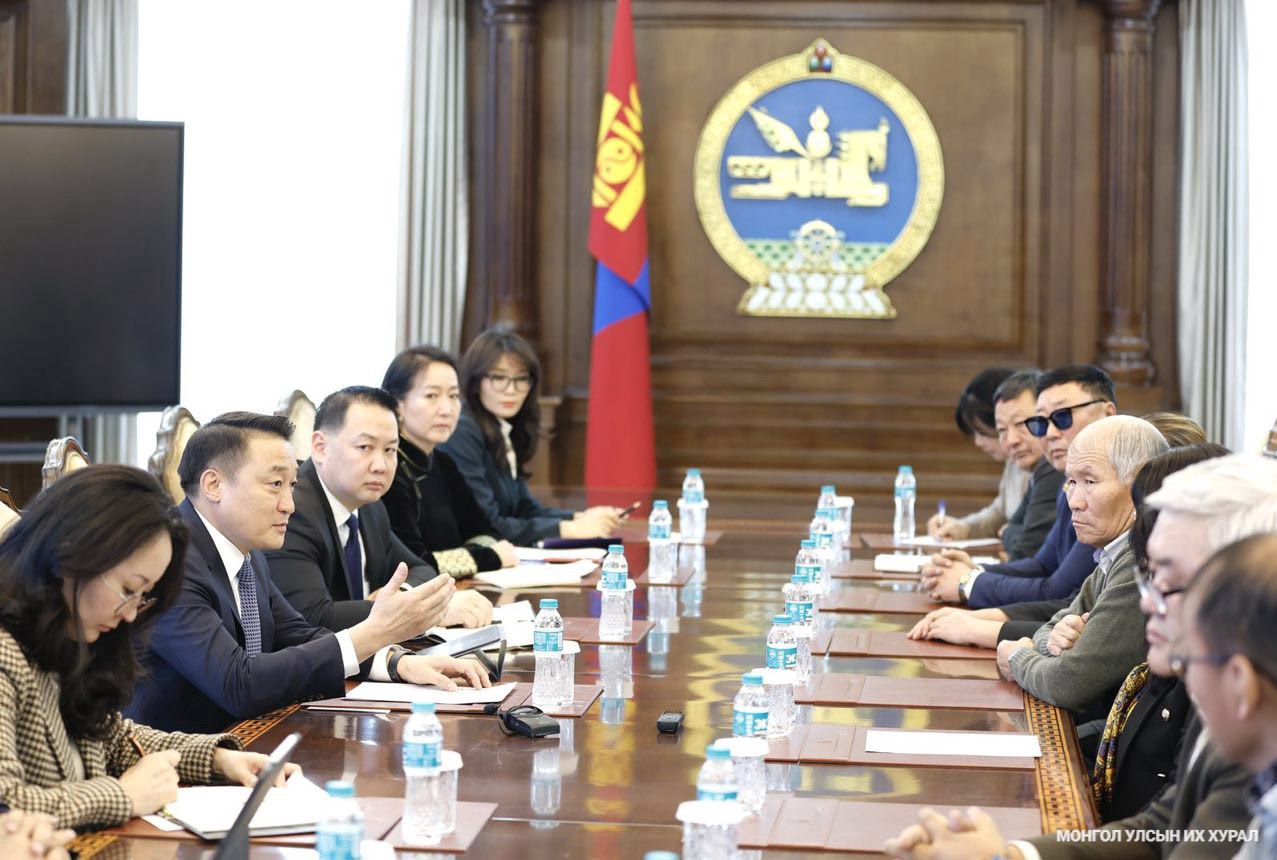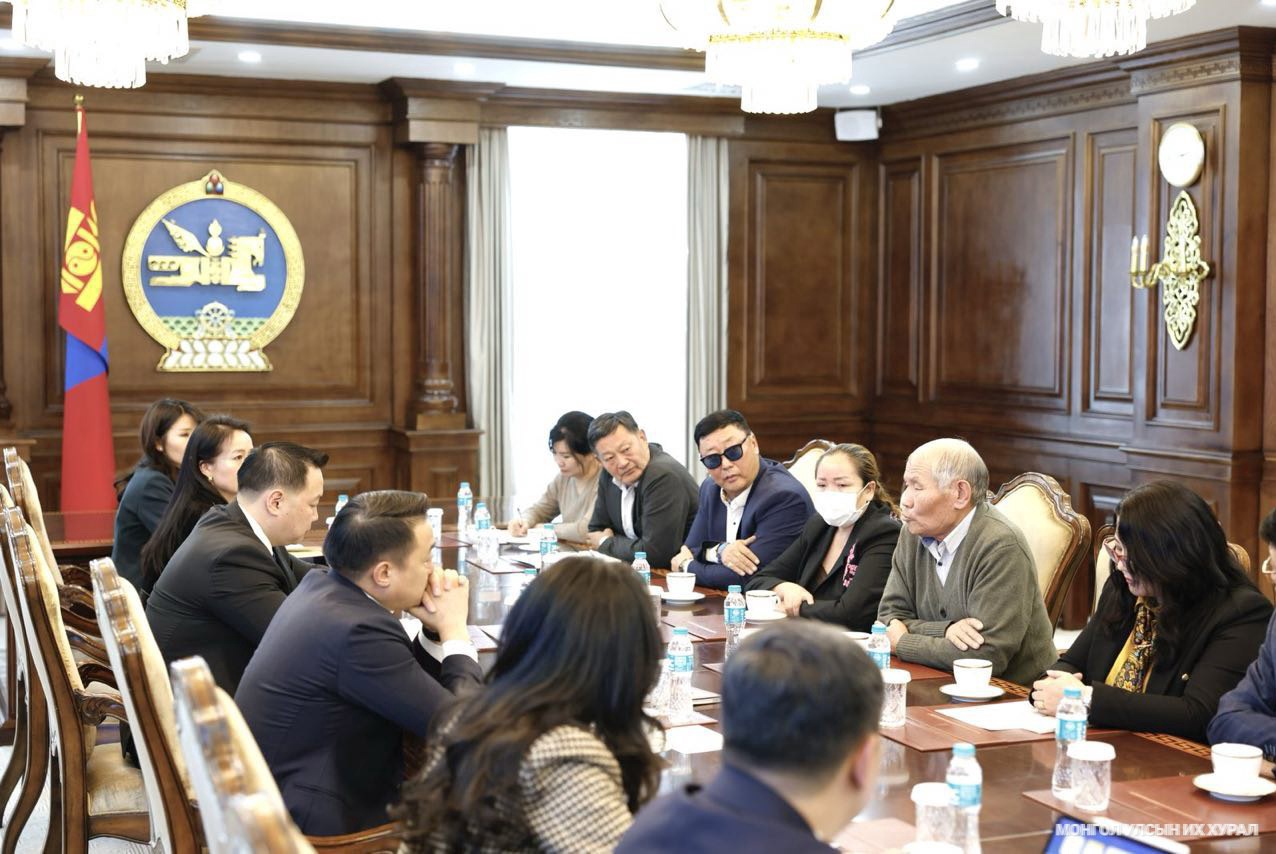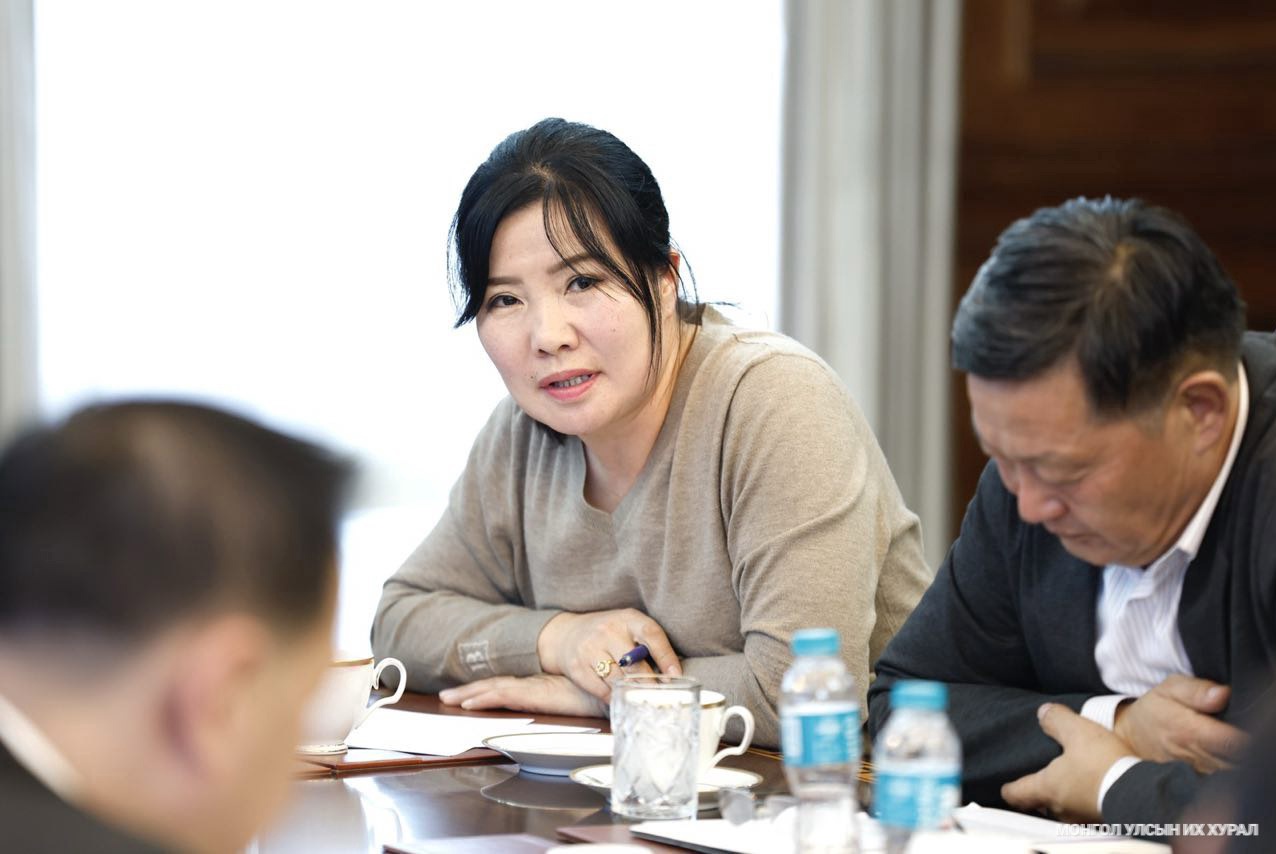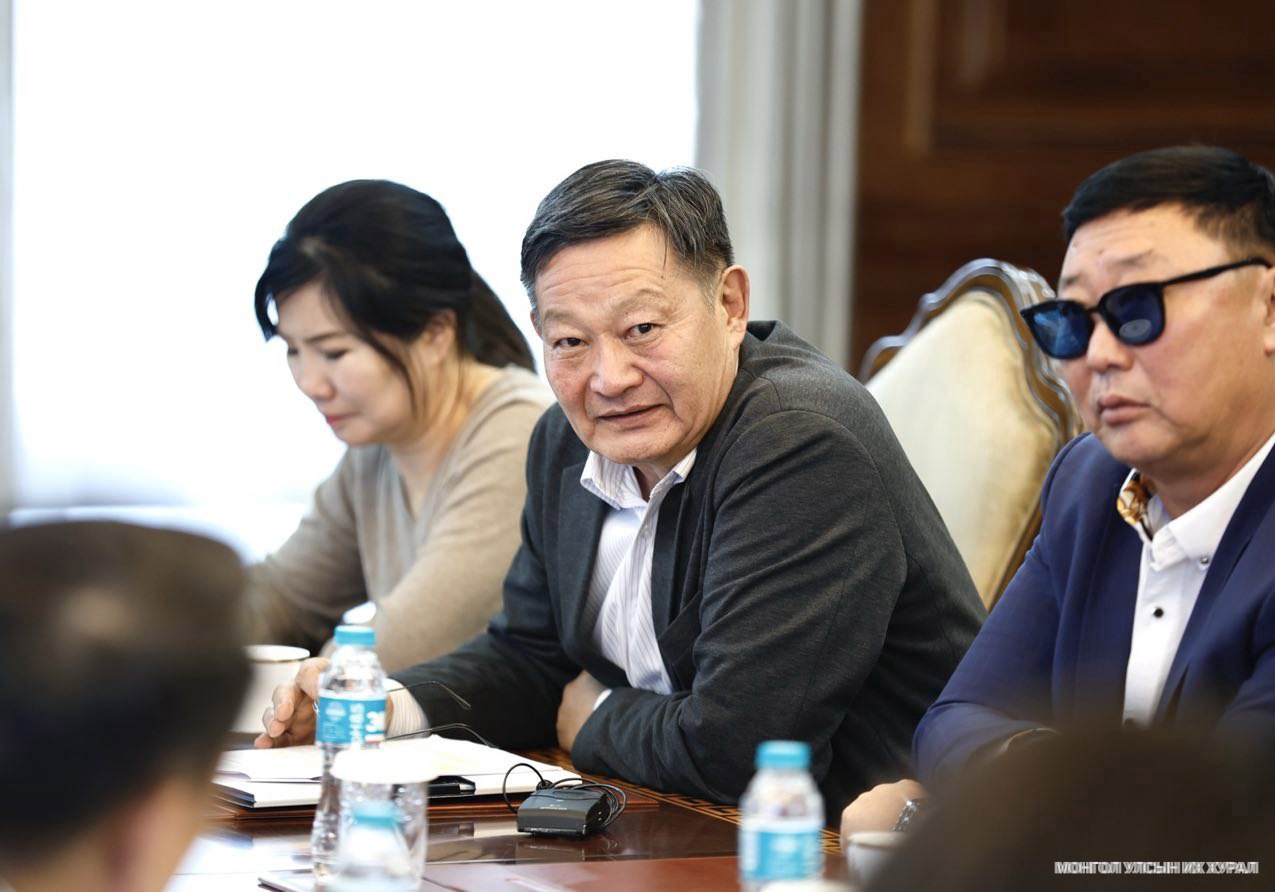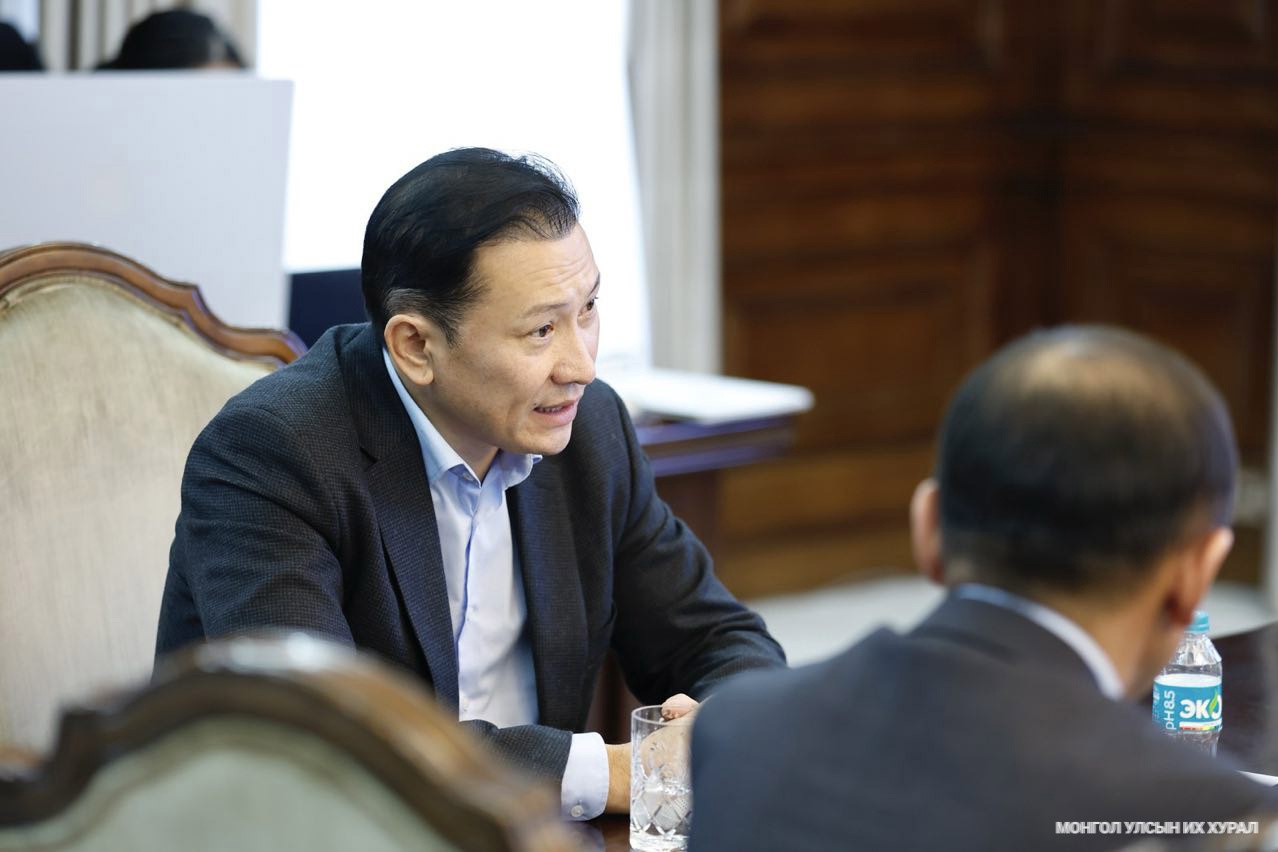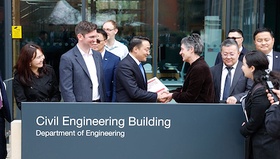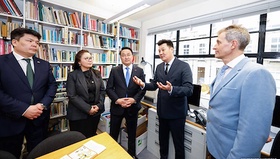On December 19, 2024, Chairman of the State Great Hural D. Amarbayasgalan met with representatives from civil society organizations, residents of Gobi-Altai Province, scientists, legal experts, and journalists who oppose the opening of the Naransewstei border checkpoint in Gobi-Altai.
The issue of reopening the Naransewstei checkpoint was raised in the Mongolian Government’s 2024-2028 action plan. However, representatives from the local community have voiced strong opposition, expressing concerns that constructing roads and reopening the checkpoint in a protected area of the Gobi could endanger rare wildlife and plant species.
At the beginning of the meeting, G. Galtaihuu, Chairman of the Mongolian Environmental Civil Council, mentioned that a petition with 20,000 signatures opposing the checkpoint had been collected. He explained that approaching the issue solely from an economic perspective overlooks the environmental harm that could result from such actions. Representatives from Gobi-Altai also emphasized that the construction and infrastructure development associated with the checkpoint would destroy the habitat of rare and endangered species, disturb fragile desert soil, and lead to increased sandstorms. Additionally, they warned that using groundwater for construction in such a delicate ecosystem could deplete vital springs and wells.
In response, Chairman D. Amarbayasgalan emphasized that when the government makes decisions, it must ensure the involvement of all affected parties and incorporate their views into the process. He instructed the Ministry of Environment and Climate Change, the Ministry of Economy and Development, the National Committee for Revival of Border Ports, and other relevant ministries, along with civil society representatives, to form a working group to assess the situation.
Chairman D. Amarbayasgalan stressed that decisions should be based on a comprehensive evaluation and research of the environmental and social risks, ensuring that the views of environmental organizations, scientists, and local residents are taken into account. He further emphasized that the government must listen to the public and protect their rights. Therefore, it is not appropriate to rush the discussion on this issue without involving the public and relevant stakeholders.
This approach reflects the government’s commitment to ensuring that decisions about development are made with full consideration of their impact on people and the environment.

 Eng
Eng  Монгол
Монгол